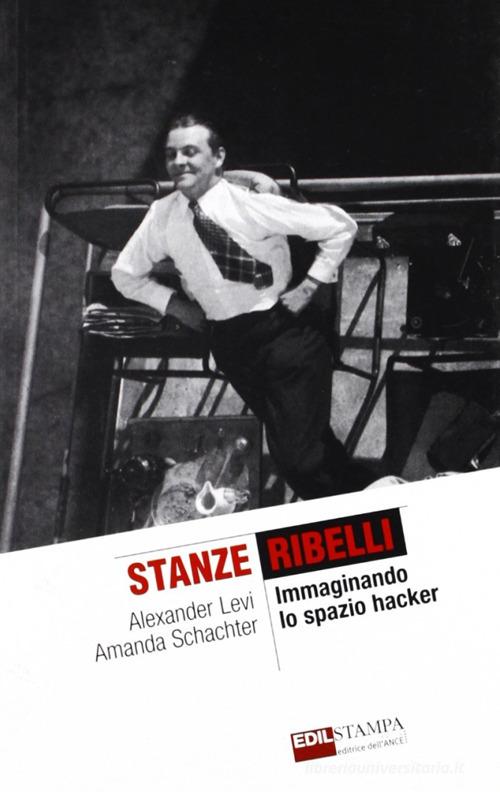
Stanze ribelli. Immaginando lo spazio hacker. Ediz. illustrata
- Editore:
Edilstampa
- Collana:
- The it revolution
- Data di Pubblicazione:
- 1 gennaio 2006
- EAN:
9788878640283
- ISBN:
887864028X
- Pagine:
- 96
- Formato:
- brossura
Descrizione Stanze ribelli. Immaginando lo spazio hacker. Ediz. illustrata
La città è piena di spazi continuamente oggetto di "hacks". Uno skater può essere uno degli hacker più visibili, che esplora ogni angolo della città in base al suo peso, velocità, gravità, possibilità, traiettoria e punto di stacco. Andare sullo skate, come ogni forma di hacking, comincia con una premessa divertente e giocosa, supportata collateralmente da un attivismo e apre a nuovi progetti e possibilità. Il testo indaga questa problematica sia nella necessaria premessa storica (dal Futurismo al Bauhaus dal Situazionismo al ruolo fondamentale di John Hedjuk) sia alle pratiche contemporanee basate sul web.
Inserisci la tua e-mail per essere informato appena il libro sarà disponibile
Recensioni degli utenti
REBEL ROOMS_Imagining the hacker space-21 aprile 2010
It's not so easy to define the domain of "Rebel rooms.Imagining the hacker space" by Alexander Levi e Amanda Schachter, published by Edilstampa in 2006. A kaleidoscopic book, buit up with experiences which seem to live by their own, but fixed in the same cultural perspective, beyond the historic reduction. The space imagined by Levi e Schachter is the uncreasingly substratum which horizontally link the futurist with the most recent researches, and which synthesize itself in the definition "hacker culture". The hacker, took for the cracker by so many (he is an expert who uses his abilities as an hacker to destroy from the inside the informatic system, which means evil to him) is a computer programmer who tackle the settlement of the game's rules. He continously writes new rules because he is against a passive use of information.The ludic attitude is the start-up for the hacker's experience, because play is a trial of strategy and group-work . It's about creating free information and open-source, to give depht back to what the deterministic use reduce to flatness. That's why we can unhistorically define the Futurism and the Bauhaus as "hucker culture" : they are interested in in the unexpressed potentiality of the machine, which the industrial system had reduced to object without sense. We can interpret too the liberty of composition of Guy Debord's and Asger Jorn's collages, the Paul Rudolph's exposition-wall in Yale's AA , as the attempt of refounding the sintactic rules which link the the elemnts of the speech each others.The hacker is often a housebreaker of not only conceptual ststems, but olso phisical ones. He foces doors, as the dutch members of TOOOL, or he propose interactive maps who find urban way free from surveillance cameras, as the IIA's system iSee. As a way of working out of categories, the hacker culture is organised in workshops ,actions and festival. The workshops, almost all in the U.S., face to project problems which go beyond any scale (from the molecular to the social) and which ask for a new way of responding. It's the case of OSBA (Open Source Building Alliance go to PDF), who develops a software in which the architect, the constructor and the client can discuss and project all together, starting from an elementar model. We speak about the case of MUSCLE by Kas Oosterhuis, environment and human interacting prototype, thanks to the coordination in an homogeneous system of heterogeneous ones.The action is done for those who wouldn't reach the technical skills by their own. Levi e Schachter speak about Rural Studio and Shelterproject.org,who create new interaction between students, people and technology.At the end, one of the most meaningful hacker festival has been Anarchitektur 2004, in the printing-house Rotaprint in Berlin-Wedding. A free congress without closed sets, at this point obsolete after CIAM. What Levi e Schachter iweave is a web of experiences which contains the hacker's play,whom place is technology and the players are all of us. "Technology needs participation to be somewhere"

